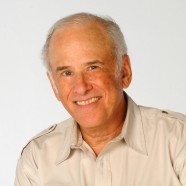
Choosing the right photographic equipment for your image-making efforts requires some thinking. You need to decide several things:
- What kinds of images do you like to shoot?
- What is your “shooting style”?
- Do you like to travel? Do you travel often by yourself?
- Are you strong?
- How do you envision using your pictures?
- Do you plan to sell your pictures? Who will buy them?
- If you photograph professionally, who will your clients be?
The kinds of pictures you will make will usually dictate the kinds of equipment you will need. So, let’s take each question one at a time.
- If you like to shoot action pictures, you will need a camera that lets you control the speed of the shutter.
- If you like to shoot nature pictures, you will need a camera that has a feature that lets you shoot close-ups as well as distant shots.
- If you often travel by yourself, you will need a camera that is very light in weight.
- If you wish to make big prints to hang on your wall, you will need a camera that has great resolution (18MP or better).
- If you wish to sell your pictures, you will need a camera capable of great resolution and of sufficient quality to produce salable images. This usually means a better-than-beginner camera and maybe one with a full-frame sensor
-
If you wish to be a professional photographer, you need to know the genre of photography in which you will want to concentrate. There are many.
- Portraits
- Weddings
- Still Life
- Stock
- Events
- Photojournalism
- Advertising
- Fine Art
- Medical
- Sports
- Studio
So, once you’ve considered the kinds of pictures you want to make, then you need to research the types of cameras and other equipment you would need. Most people who are thinking about buying camera gear already know the types of images they intend to create. They will, most likely, need a camera that will perform several different functions. If you are an amateur, and enjoy making pictures of your family, a high quality point-and-shoot camera will probably do the job. They are small, light in weight and easy to operate. They have automatic functions that will take most of the guesswork out of normal, everyday shooting.
If you are a semi-professional, (someone who may have their images used on websites or in newspapers once in a while), you will probably need a camera of a little higher quality such as a middle line DSLR. These cameras have lens interchangeability and other features which are a step or so up from the point-and-shoot variety. They also have greater resolution which enables really high quality images.
If you are a professional (someone who makes their living taking pictures), you will need a top-of-the-line camera with even greater resolution (18MP or higher), interchangeable lenses, extra battery power, etc. If you travel a lot on assignment, you will probably need several lenses and at least to camera bodies. If you like to shoot sports, you will need a good telephoto lens in your arsenal (200mm or more). If you are a still life, product photographer, you will need a macro lens (one that allows you to make images at 1:1 magnification). If you are a wedding or event photographer, you will need a fast (f/2.8 or better) wide-angle lens. If you want to shoot portraits in a studio setting, you will need a medium telephoto (80mm to 105mm) in order to make your portraits reproduce your subjects in correct proportions.
As an example, I am basically a studio photographer. I have a full complement of studio lights (strobes, light stands, umbrellas, softboxes and various reflectors to handle just about any assignment). I also do many assignments on location so I also have several portable speedlights (electronic flash units) and radios to control them. I carry two DSLR camera bodies and five lenses. I tend to prefer prime (fixed focal length) lenses to zooms because they tend to be a bit sharper. One of my camera bodies has a full-frame sensor. The other has a crop-sensor. This gives me a little variety in how each of my lenses performs.









